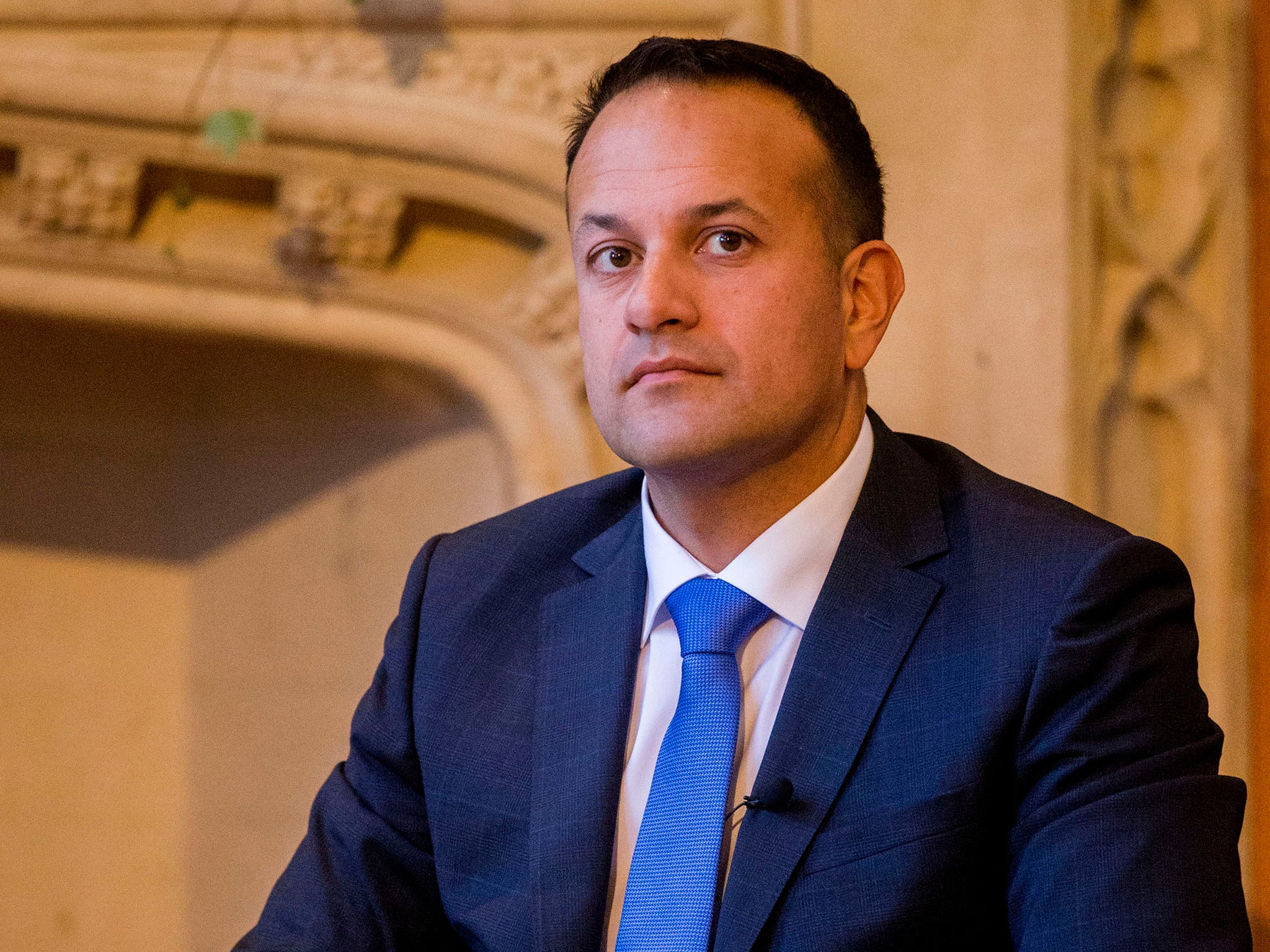The Irish question in the Brexit negotiations will not be an easy one to answer
None of the permutations being openly discussed on all sides actually show much sign of being practical across a highly porous 350 mile border

Your support helps us to tell the story
From reproductive rights to climate change to Big Tech, The Independent is on the ground when the story is developing. Whether it's investigating the financials of Elon Musk's pro-Trump PAC or producing our latest documentary, 'The A Word', which shines a light on the American women fighting for reproductive rights, we know how important it is to parse out the facts from the messaging.
At such a critical moment in US history, we need reporters on the ground. Your donation allows us to keep sending journalists to speak to both sides of the story.
The Independent is trusted by Americans across the entire political spectrum. And unlike many other quality news outlets, we choose not to lock Americans out of our reporting and analysis with paywalls. We believe quality journalism should be available to everyone, paid for by those who can afford it.
Your support makes all the difference.The new face of Ireland showed itself at Queen’s University, Belfast. Young, pragmatic, modern, mixed heritage, gay, reforming, European in outlook – the Irish Taoiseach, Leo Varadkar, is about as far away from the old hidebound image of an Irish statesman as it is possible to get. He has also has an economic and political problem at least as substantial as any that have faced his predecessors: Brexit.
Once again the Irish government have voiced its concerns about Brexit, and especially the consequences for Northern Ireland’s economy and stumbling power-sharing executive. In fact Mr Varadkar and his colleagues are preaching to the converted, if that’s not too religiose a phrase. Theresa May and every other British politician also says that they do not want a hard border between the two parts of Ireland, no matter the terms of Brexit. The Northern Ireland Executive, if it has a voice during its current absence, would say the same, Sinn Fein and the Democratic Unionists united on that at least. Almost every citizen of whatever entity on the island of Ireland – including EU nationals from beyond the islands living and working there – would obviously concur. The European Union itself, and its chief negotiator Michel Barnier, has also pledged itself to put the Irish border question at the top of the agenda, and to resolve it swiftly. The Leave and Remain camps during the referendum and since, often so tribally divided, also agreed that the Irish border question should not and would not become a “problem”.
And yet it is. That is because none of the permutations being openly discussed on all sides actually show much sign of being practical across a highly porous 350 mile border. Sometimes the analogy is made between the EU’s other western land border, between EU member Sweden and non-member Norway. Yet Norway, as a member of the European Economic Area and in the EU Single Market, and Britain may not end up in that space. Norway is also a party to the Schengen Agreement on passport-free movement of people, something inconceivable for the UK (or Ireland for that matter). Neither do Sweden and Norway carry anything like the baggage of the Troubles to sour the political and cultural aspects of their relationship. The lorries trundling unhindered around Scandinavia, in other words, offer only a limited degree of hope for a solution to the Irish border issue. From the cross-border Shannon–Erne Waterway to the big agri-businesses there is no easy way to see how life in the new world will be easier than the old one.
Other proposals, such as a “sea border”, in effect a trade or customs border between Great Britain and Northern Ireland, have also been rejected on political grounds, and may not even be practical in any case. Registering workers and issuing identity cards in the UK might be one way to deal with the possibility that Dublin might constitute a “back door” for cross-border migration form the rest of the EU – but no one talked about that in the EU referendum, and the British move proved resistant to the incursions on their civil liberties the need to carry their “papers” would entail.
It may now be dawning on all the parties concerned that Brexit, in any form, and the current easy movement of people, goods and services between Ireland and the UK cannot be maintained. It is almost as if a room full of well-meaning people have all sat around a table and agreed that two and two must equal five – but of course no one is able to come up with a plan to mobilise the mathematical goodwill so that two and two don’t make four, which is universally condemned as a disastrous idea.
Still, there is that goodwill and some hope. There is intensive work going on, despite the languid pose David Davis likes to strike, and imaginative solutions may yet emerge. The Taoiseach has asked for those fond of talking about “technological answers” to describe and explain them. If not, then the intractability and danger of this Irish question represents another fact of Brexit that was not fully understood at the referendum last year.
As with so much else, the case is thus made once again that the British people should have their final say on the terms of Brexit, and to give their consent to all its consequences, including those that may befall friends and neighbours on the other side of the Irish Sea.
Join our commenting forum
Join thought-provoking conversations, follow other Independent readers and see their replies
Comments